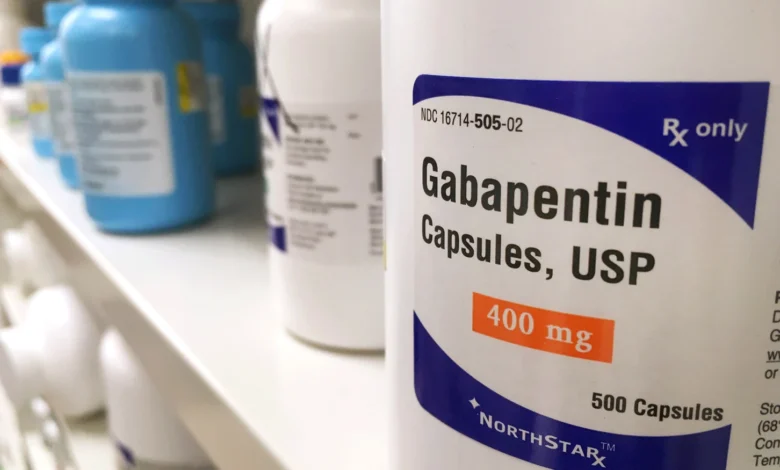From Relief to Ruin: How Gabapentin Ruined My Life
From Relief to Ruin: How Gabapentin Ruined My Life

Have you ever taken a medication that promised to provide relief but ended up causing more harm than good? This is precisely the case with Gabapentin, a prescription drug commonly prescribed for various medical conditions such as epilepsy and neuropathic pain. What was once hailed as a wonder drug has now left a trail of ruined lives in its wake.
What is Gabapentin?
Gabapentin ruined my life, also known by its brand name Neurontin, is an anticonvulsant medication primarily used to treat seizures and relieve neuropathic pain. It was initially approved by the FDA in 1993 and gained popularity as a safe and effective treatment option. As an anticonvulsant, Gabapentin works by reducing abnormal electrical activity in the brain, providing relief for individuals suffering from epilepsy.
Common Uses and Benefits of Gabapentin
Gabapentin has been prescribed for a wide range of medical conditions, including epilepsy, neuropathic pain, restless leg syndrome, and even hot flashes associated with menopause. It is often used as an adjunct therapy, meaning it is prescribed alongside other medications to enhance their effectiveness.
The drug has been successful in providing relief for many individuals. Patients with epilepsy have reported a reduction in the frequency and severity of seizures, allowing them to lead more normal lives. Similarly, those suffering from neuropathic pain have experienced a decrease in discomfort and improved quality of life.
Side Effects and Risks of Gabapentin
While Gabapentin may provide relief for some, it is not without its risks and side effects. Common side effects include dizziness, drowsiness, and fatigue. These symptoms are usually mild and tend to subside over time as the body adjusts to the medication. However, some individuals may experience more severe side effects such as difficulty breathing, swelling of the face or extremities, and mood changes.
One of the more concerning aspects of Gabapentin use is its potential for addiction and dependency. Although not classified as a controlled substance by the DEA, Gabapentin has been found to have abuse potential and can lead to physical and psychological dependence. This risk is heightened when the medication is used in higher doses or for extended periods.
My Journey with Gabapentin – The Initial Relief and Gradual Decline
I was first prescribed Gabapentin three years ago after being diagnosed with neuropathic pain following a car accident. At first, the medication seemed like a miracle. The excruciating pain that had plagued me for months was finally subsiding, and I could finally sleep through the night without being awakened by sharp, shooting pains.
However, as time went on, I started noticing subtle changes. I began experiencing drowsiness during the day, affecting my ability to concentrate and perform at work. I also noticed my mood becoming more unstable, swinging from extreme irritability to bouts of depression. These side effects were initially brushed off as normal and temporary, but they only worsened over time.
Recognizing the Signs of Gabapentin Dependency and Addiction
It wasn’t until I stumbled upon an online support group that I realized I might be experiencing more than just side effects. Reading the stories of others who had gone through similar struggles opened my eyes to the possibility of Gabapentin dependency and addiction. I started recognizing the signs in myself – the cravings for the medication, the anxiety and restlessness when I didn’t have it, and the increasing doses I needed to achieve the same level of pain relief.
Gabapentin addiction is often overlooked and underestimated, leading many individuals to suffer in silence. It is crucial to be aware of the signs and symptoms of dependency, such as craving the drug, using it beyond the prescribed dosage, and experiencing withdrawal symptoms when attempting to stop or reduce the medication.
Seeking Help and Overcoming Gabapentin Addiction
Once I acknowledged my dependency on Gabapentin, I knew I had to seek help. I reached out to my healthcare provider, who referred me to a specialist in addiction medicine. Together, we developed a tapering plan to gradually reduce my dosage while incorporating alternative pain management strategies.
The road to recovery was not easy. Withdrawal symptoms were intense, ranging from flu-like symptoms to severe anxiety and insomnia. However, with the support of my healthcare team and the understanding of my loved ones, I was able to overcome the physical and psychological challenges associated with Gabapentin addiction.
Alternatives to Gabapentin for Pain Management
While Gabapentin may be effective for some individuals, it is crucial to explore alternative pain management options to avoid the potential risks and side effects associated with the medication. Non-pharmacological approaches such as physical therapy, acupuncture, and cognitive-behavioral therapy have shown promising results in managing chronic pain.
In addition, there are other medications available that may provide relief without the same level of dependency risk as Gabapentin. Nonsteroidal anti-inflammatory drugs (NSAIDs) and opioids are commonly prescribed for pain management, but they come with their own set of risks and side effects. It is essential to work closely with a healthcare provider to find the most suitable and safest treatment option for individual needs.
Conclusion – Raising Awareness about the Risks of Gabapentin and the Importance of Informed Decision Making
My journey with Gabapentin has been a challenging one, but it has also taught me the importance of awareness and informed decision making when it comes to medication. It is crucial for both patients and healthcare professionals to be educated about the potential risks and side effects of Gabapentin, especially in regards to dependency and addiction.
By sharing my story and shedding light on the dark side of Gabapentin, I hope to raise awareness and encourage open discussions about alternative treatment options. It is essential that individuals are empowered to make informed choices about their health, weighing the potential benefits against the risks associated with any medication.
Resources for Support and Recovery from Gabapentin Addiction
If you or someone you know is struggling with Gabapentin addiction, it is important to seek professional help. Addiction specialists, support groups, and counseling services can provide the necessary support and guidance throughout the recovery process. Additionally, online resources and helplines are available to offer information and assistance to those in need.
Remember, you are not alone in your journey towards recovery. There is help available, and with the right support system, it is possible to overcome the challenges posed by Gabapentin addiction and reclaim your life.




One Comment